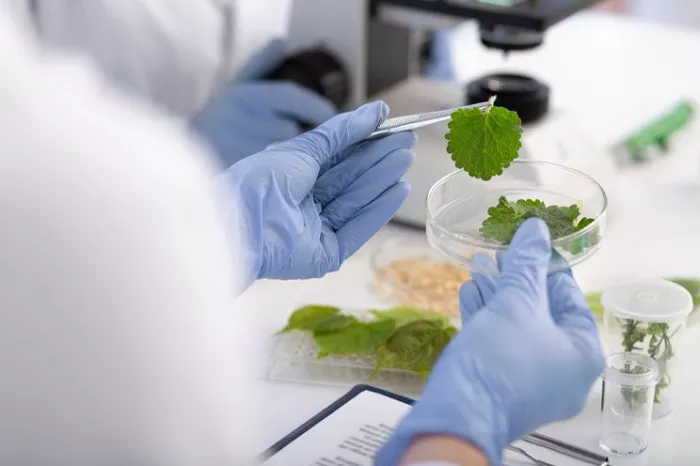In 2025-2026, the American Floral Endowment (AFE) has committed to funding 12 research projects with a total investment of $636,525. These projects, which include four new initiatives and eight ongoing ones, cover a range of critical topics in the floriculture industry, such as pest management, disease control, post-production practices, and technological advancements. AFE’s support aims to drive the continued growth and innovation within the floriculture sector, providing practical solutions and fostering a sustainable future.
Laura Barth, AFE Research Coordinator, emphasized the organization’s commitment to addressing both immediate and long-term challenges in floriculture. “We are proud to support research that not only provides practical solutions for today’s growers but also lays the groundwork for a more sustainable and resilient future,” she said. “We look forward to following the results of these studies and how they will contribute to the continued growth and success of the floriculture industry.”
New Projects
Disease Research Management
Assessing Biocontrol and Chemical Strategies for Managing Phytophthora spp. in Commercial Floriculture Production
Researcher: Ana Maria Pastrana Leon, University of California Agriculture and Natural Resources
Objective: Characterize key Phytophthora spp. affecting California floriculture crops, confirm their pathogenicity, evaluate the efficacy of biological and synthetic fungicides, quantify fungicide effectiveness using qPCR, and disseminate findings through bilingual publications and outreach.
Reducing Powdery Mildew Disease in Floriculture Using RNAi Bioproducts
Researcher: Mary Wildermuth, University of California, Berkeley
Objective: Develop an RNAi biocontrol product against powdery mildew, with potential applications for downy mildew control in roses.
Insect Management
Refining UV-C Light Application for Thrips Management in Greenhouse Ornamentals
Researcher: Margaret Skinner, University of Vermont
Objective: Refine and construct an automated UV-C apparatus to treat young ornamental plants for western flower thrips, test its efficacy, and assess plant effects from UV-C exposure.
Nutrition/Water Management
Bioreactors for Reduction of Agrochemicals in Agricultural Production Water
Researcher: Tom Fernandez, Michigan State University
Objective: Determine optimal conditions for pesticide remediation and nutrient control in commercial-scale flood-floor irrigation systems, and understand the microbiome dynamics responsible for remediation.
Continuing Projects
Insect Management
Mitigation of the Invasive Tropical Pest, Thrips Parvispinus: Clean Start and Biological Control
Researcher: Rose Buitenhuis, Vineland Research and Innovation Centre
Objective: Develop sustainable long-term solutions for managing T. parvispinus in greenhouse ornamentals through integrated pest management strategies.
Innovative 3-Tiered Management of Western Flower Thrips (WFT) in Ornamental Greenhouse Productions
Researcher: Christian Nansen, UC Davis
Objective: Integrate three technologies—robotic rail systems for predatory mite release, customized lighting, and optimized organic insecticides with plasma activated water—to manage WFT.
Disease Management
Enhancing the Performance of Biological Control Agents for Botrytis Control
Researchers: Jim Faust and Guido Schnabel, Clemson University
Objective: Improve the performance of biological control agents for Botrytis blight by understanding their failures in greenhouse environments and providing conditions for their success.
Post-Production
Development of Potent Ethylene Antagonists for Floricultural Crops
Researcher: Rasika Dias, The University of Texas at Arlington
Objective: Develop anti-ethylene products for commercial use by targeting ethylene binding sites and bio-synthetic pathways, and creating stabilized silver formations.
Production Technology and Tools
Identification and Application of Plant Growth Promoting Bacteria to Improve Floriculture Crop Plant Quality and Reduce Inputs
Researcher: Michelle Jones, The Ohio State University
Objective: Identify bacteria that promote growth with lower fertilizer inputs and optimize their effects in soilless greenhouse production systems.
Putting Floriculture A.I. to Work: Development of Smart Diagnostic Tools
Researcher: Brian Whipker, North Carolina State University
Objective: Expand leaf tissue standards for diagnosing nutritional issues, develop an AI interpretation tool for leaf tissue diagnostics, and create a web-based diagnostic app for growers.
Reducing Peat-Use in Greenhouse Production Through Wood Fiber Substrate Stratification
Researcher: Jeb Fields, University of Florida
Objective: Evaluate the effectiveness of wood fiber and other materials in stratified substrate systems, explore shallow stratification, and fine-tune irrigation and fertility applications.
Water and Nutrition Management
Floriculture Production Practices in Peat Reduced Substrates
Researcher: Brian Jackson, North Carolina State University
Objective: Provide data on crop management strategies to improve production efficiency, reduce losses, and enhance crop quality using sustainable peat alternatives.
AFE remains dedicated to supporting research that addresses the challenges and opportunities within floriculture. The 2025-2026 funding cycle is expected to drive continued growth and success across the industry.


